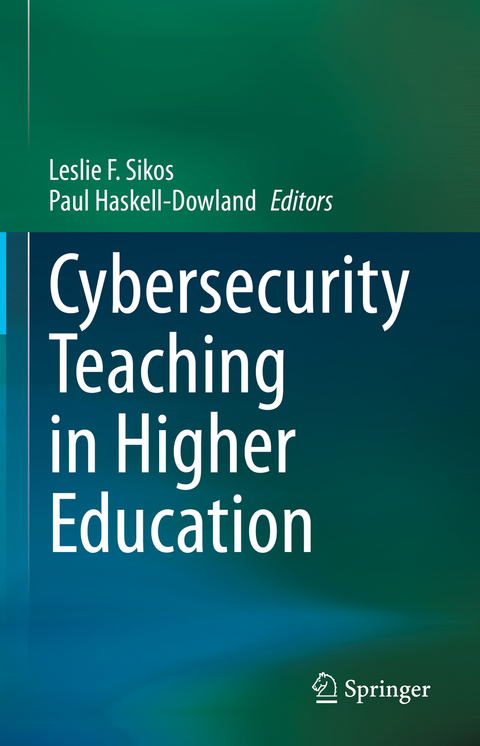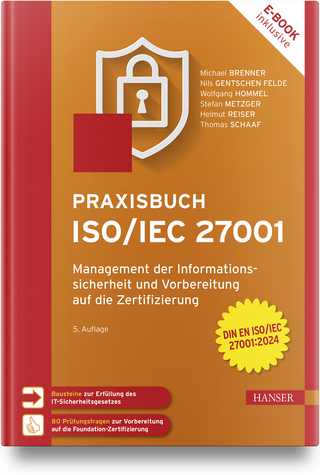
Cybersecurity Teaching in Higher Education
Springer International Publishing (Verlag)
978-3-031-24215-1 (ISBN)
The many challenges of cybersecurity education are further complicated by the continuous evolution of networking and cloud computing, hardware and software, which shapes student expectations: what is acceptable and respected today might be obsolete or even laughable tomorrow.
Dr. Leslie F. Sikos is a computer scientist specializing in artificial intelligence and data science, with a focus on cybersecurity applications. He holds two Ph.D. degrees and 20+ industry certificates. He is an active member of the research community as an author, editor, reviewer, conference organizer, and speaker; a senior member of the IEEE, and a certified professional of the Australian Computer Society. Beyond numerous journal papers, Dr. Sikos published more than 20 books, including textbooks, monographs, and edited volumes.Prof. Paul Haskell-Dowland is the Associate Dean for Computing and Security in the School of Science at Edith Cowan University, Perth, Australia. Paul has maintained a significant interest in cybersecurity education with leadership roles in higher education institutions. Paul has led teams delivering cybersecurity education at undergraduate and postgraduate level including research programs through to Ph.D. Paul is the ACS/Australian Country Member Representative and Chair of the International Federation for Information Processing (IFIP) Technical Committee 11; a member of the ACS Cyber Security Committee; a Fellow of the Australian Information Security Association; and, a Fellow of UK HE Advance (FHEA)—all with a focus on cybersecurity education, training, and awareness. In addition to his academic leadership role, Paul has delivered keynotes, invited presentations, workshops, professional development/training and seminars across the world.
Chapter. 1. Challenges and Opportunities of Teaching Cybersecurity in UK University Computing Programmes.- Chapter. 2. Using the Delphi Method to Elicit Requirements for an International Master's Program in Information Security Management.- Chapter. 3. Designing and Developing a Scenario-Based Curriculum for Cyber Education in HE.- Chapter. 4. Enabling teamwork in Cybersecurity courses.- Chapter. 5. Towards a Light-Weight Certification Scheme for Cybersecurity MOOCs.- Chapter. 6. Learning Environments for Digital Forensics Teaching in Higher Education.
| Erscheinungsdatum | 17.05.2023 |
|---|---|
| Zusatzinfo | X, 139 p. 8 illus., 5 illus. in color. |
| Verlagsort | Cham |
| Sprache | englisch |
| Maße | 155 x 235 mm |
| Gewicht | 385 g |
| Themenwelt | Schulbuch / Wörterbuch ► Unterrichtsvorbereitung ► Unterrichts-Handreichungen |
| Informatik ► Netzwerke ► Sicherheit / Firewall | |
| Sozialwissenschaften ► Pädagogik | |
| Schlagworte | Bachelor of Cybersecurity • cybersecurity course • Cybersecurity Curriculum • Cybersecurity education • cybersecurity knowledge bases • cybersecurity lab • cybersecurity MOOC • cybersecurity postgraduate • cybersecurity teaching • Cybersecurity Training • cybersecurity undergraduate • digital forensic training • Master of Cybersecurity • social constructivism • Technology-Enhanced Learning |
| ISBN-10 | 3-031-24215-7 / 3031242157 |
| ISBN-13 | 978-3-031-24215-1 / 9783031242151 |
| Zustand | Neuware |
| Haben Sie eine Frage zum Produkt? |
aus dem Bereich


